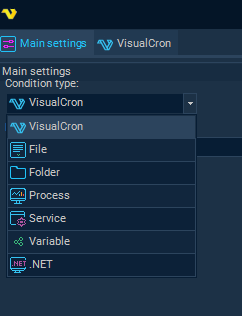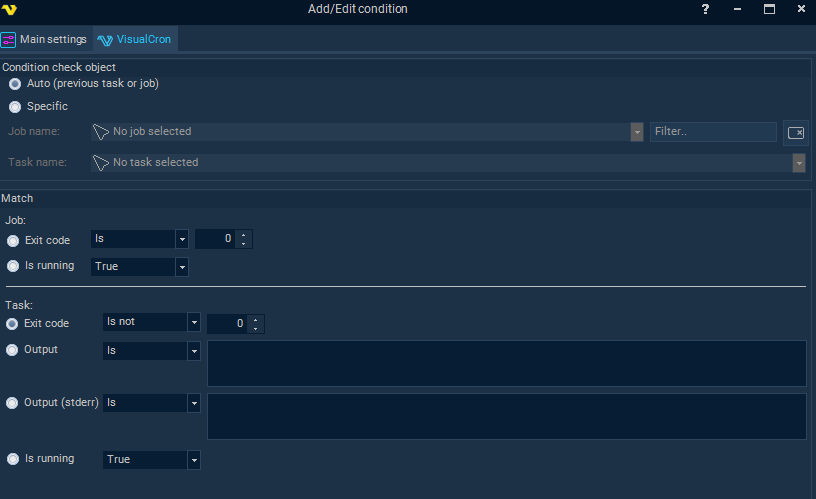Conditions
In VisualCron RPA, Conditions are logical checks that determine whether a task or job should proceed, branch, or terminate. They are part of the flow control mechanism and are essential for building intelligent, responsive automation workflows.
Conditions in the Workflow
Conditions follow Triggers in the automation workflow for RPA jobs.
Trigger -> Condition -> Task -> Notification
Condition Details
Conditions are grouped into condition sets, which include:
- A description
- One or more conditions
- Actions based on whether conditions match or not (e.g., continue, exit, skip)
Each condition has:
- A type (e.g., VisualCron, File, Folder, Process, Variable, .NET)
- A description
- A flag for whether it is active
- Parameters specific to the condition type
Common Condition Types
- VisualCron: Checks internal values like task exit codes, task output, or whether a task/job is running.
- File/Folder: Checks for existence, size, or modification time.
- Process: Verifies if a specific process is running.
- Variable: Compares values of defined variables.
- .NET: Executes custom .NET logic for advanced scenarios.
Match Logic
Conditions use match types to evaluate outcomes:
- MatchAll: All conditions must be true to proceed.
- MatchNone: If none are true, a fallback action is triggered.
- MatchAny: If any condition is true, the associated action runs.
Example: If a task’s exit code is 0 (success), the next task continues. If not, the job exits or branches based on the defined action
You can define conditions in the Global > Conditions dialog within the VisualCron Client UI. Here's how:
Create a Condition Set
Add a Condition within the Job
Within the Job, navigate to Conditions > Add/Update Condition. This is where you define the logic that governs task execution.

Choose Condition Type

Define Logic
